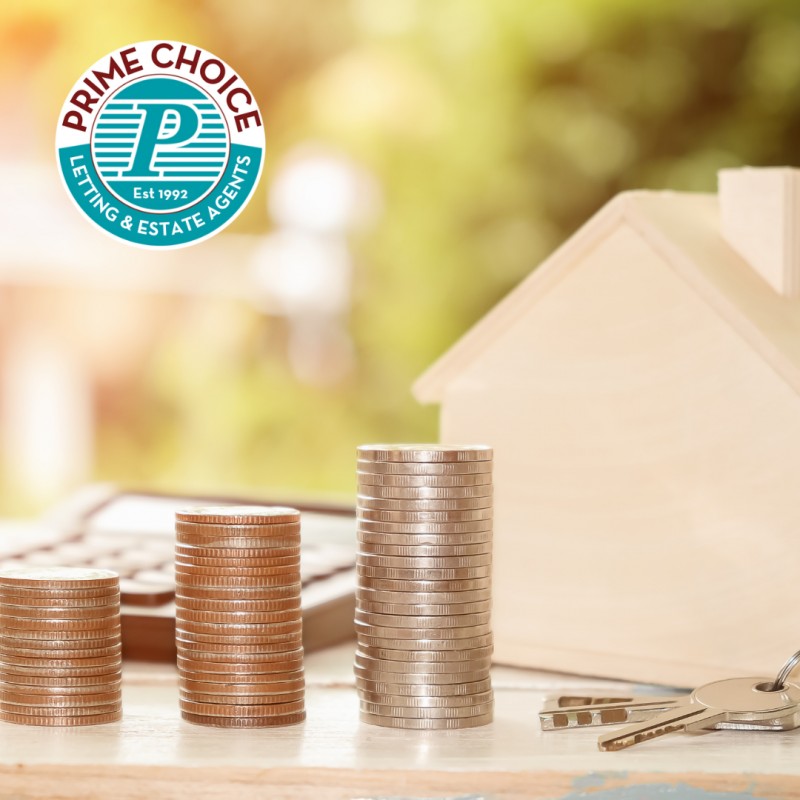What are the current UK mortgage rates?
If you’re thinking about buying a home, you might be wondering what the current mortgage rates are in the UK. Lenders change the rates of their mortgage products regularly. That’s why we update the average mortgage rates weekly and compare how they’ve changed since the previous week. You can also compare the rates across a range of loan to value (LTV) percentages.
What is a mortgage and how do they work?
A mortgage is an agreement between you and a lender that gives the lender the right to take your property if you fail to repay the money you've borrowed from those lenders plus interest. Mortgage loans are used to buy a home or to borrow money against the value of a home you already own. You'll usually need to put down a deposit for at least 5% of the property value, and a mortgage allows you to borrow the rest from a lender. You'll then pay back what you owe monthly, generally over a period of many years. There are also different types of mortgages depending on what your needs are to your circumstances.
What’s happening with mortgage rates now?
There has been lots of news about Base Rate rises and how they can impact mortgage rates. The Bank of England (BoE) meet about every six weeks to decide whether the Base Rate should go up or down or stay the same. On 23 March, the Base Rate increased to 4.25%, from 4% in February. Rightmove’s mortgage expert Matt Smith says: “Mortgage lenders had already factored in a Bank Rate rise in March. The fact that it was lower than the previous rise in February, along with the longer-term indication that inflation is still likely to fall sharply over the year, is giving lenders more confidence to start to edge down their rates.
Types of mortgages:
Though all types of mortgage function in a similar way, factors like interest rates, repayment methods, and fees can differ between products. Because of this, finding the best deal isn’t simply a case of choosing the lowest rate, but more about finding the right mortgage to suit your financial situation. The most common ones are listed below:
Repayment Mortgage: A repayment mortgage is a type of mortgage where you repay some of the capital amount you’ve borrowed, as well as some of the interest on the loan. The aim is to pay back the original loan amount plus interest over the term agreed when you take out the mortgage, allowing you to build equity over time and eventually own your home outright.
Interest only Mortgage: An interest-only mortgage requires you to pay the interest on the mortgage amount each month, but not any repayment towards the capital you’ve borrowed. Instead, the loan amount is paid back at the end of the mortgage period, so you will need to make sure that you have the means to repay the whole debt. This differs from a repayment loan, where the amount is paid back incrementally alongside the interest. The advantage of an interest-only mortgage is that your monthly repayments will be much lower than any other mortgage product. However, you will need to make sure that you’ve accumulated enough funds to repay at the end of the term, or you may have to sell the property to cover what you owe.
Fixed-rate Mortgage: With a fixed-rate mortgage, the interest rate is fixed for a set amount of time and won’t be affected by Bank of England base rate rises or fluctuations in the market. This fixed interest rate is often referred to as the introductory rate. Once you’ve taken out a fixed-rate mortgage, you will be locked into the introductory rate for a set period, and if you leave you’ll be subject to exit fees. Typically, the fixed rate period (also known as the initial rate period) is the first two, three, or five years of the term. During this time, you will know exactly how much you will be paying each month, and this won’t change until the fixed period has expired, making it easier to budget.
Variable Mortgage: A variable rate mortgage is a product in which the interest rate can shift at any time, either to a higher or lower amount. Unlike a fixed-rate mortgage, there is no period where the rate is locked in, and how much you pay each month is subject to change. This type of mortgage is affected by the Bank of England’s base interest rate, as well as other factors. Also, there is more than one type of variable rate mortgage to consider, standard variable rate, tracker, discount, and capped-rate.
Buy to Let Mortgage: A buy-to-let mortgage is a product aimed at prospective landlords who want to purchase a property to rent out to others, rather than as a residence. There are some key differences between buy-to-let and residential mortgages. Firstly, rather than assessing the amount you can borrow solely on your own personal income, lenders will consider the level of rent that you’re expect to receive from your tenants. Typically, a lender will require annual rent to be 125% of the mortgage repayments. The fees and interest rates are usually higher than regular products, and the minimum deposit required is typically 20–40% of the property’s value. Both interest-only and repayment buy-to-let mortgages are available, but most landlords tend to choose an interest-only product due to the lower monthly payments. However, a repayment buy-to-let mortgage is an option if you wish to avoid paying off a large amount of money later and would prefer to pay some of the capital off every month.
To find out the best route and options for you when looking for a mortgage, please call our offices for further guidance and advise.



